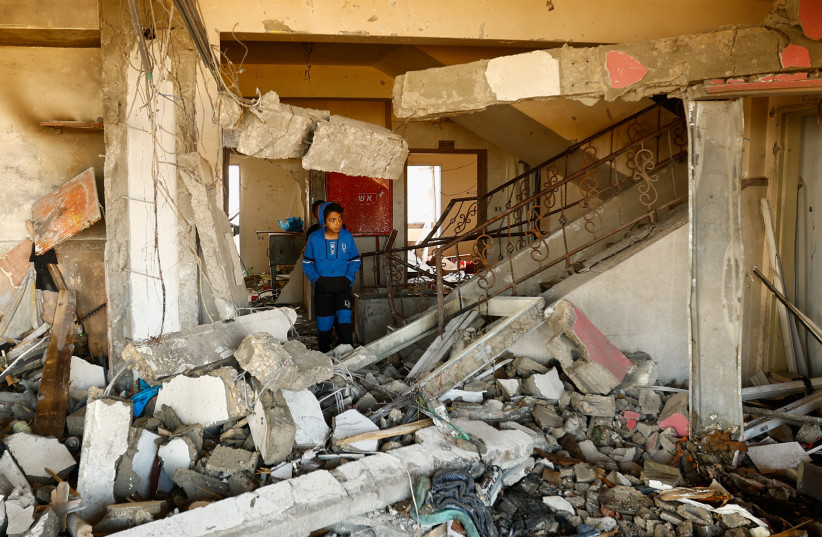Prime Minister Benjamin Netanyahu admitted for the first time that Israel could lose International support for its war with Gaza as he argued Saturday night that it was essential to supply then enclave with humanitarian aid.
“The humanitarian aid is also essential for the continued guarantee of international support,” Netanyahu said.
“Without humanitarian aid, even our best friends will find it difficult to support us for a long time, and it will be very difficult for us to continue the war until the end," he added.
He defended the war cabinet’s decision to acquiesce to a US request that a limited amount of fuel enter Gaza through the Egyptian crossing at Rafah for United Nations use.
Misuse of resources
Israel has been concerned that Hamas would divert the fuel for its military use, including the launching of rockets against Israel. Finance Minister Bezalel Smotrich and Public Security Minister Itamar Ben-Gvir opposed the move to send fuel into Gaza.

On Friday, National Security Adviser Tzachi Hanegbi said Israel would “provide two tankers a day for the sewage system in the Gaza Strip, which is on the verge of collapse without electricity and without the capability to run the sewage and water systems operated by United Nations Relief and Works Agency.”
He explained that there was a basic Israeli health interest in taking this step.
“The decision was that we want to prevent the spread of diseases. We don’t currently need epidemics that will harm civilians there or our soldiers. If there is an epidemic, the fighting will be stopped. If there is a humanitarian crisis and an international outcry, we will not be able to continue the fighting under those conditions,” Hanegbi stated.
On Saturday night, Netanyahu stated, “I want to emphasize: this is not a policy change, but a limited one-point response to prevent the spread of epidemics.
“These are some of the things that my colleagues and I in the cabinet are doing to ensure the continuation of Israel’s political maneuvering space, a space that we need to achieve the goals of the war,” he stated.
The international community has increased its pressure on Israel with regard to humanitarian aid and a ceasefire, particularly in light of the high casualty count. Hamas has asserted that over 11,000 Palestinians have been killed in war related violence in Gaza.
“You cannot establish a military victory without political backing, and you cannot establish political backing without appealing to both the leaders and public opinion in their countries.”
Prime Minister Benjamin Netanyahu
Netanyahu stated that Israel is under heavy international pressure on many fronts with respect to this war and that support from its allies was critical to its ability to continue the war.
“This is exactly the effort I have been leading with my friends since the outbreak of the war. We insist on our vital security and political interests, and I must tell you, in the face of stiff opposition.
“When our adversaries as well as our friends see this insistence, when they hear it in interviews in the international media and in conversations with leaders, we gain the necessary space to continue the action,” Netanyahu said.
“We resisted, and we continue to resist: many in the world demanded that we not enter the Gaza Strip – we did. They pressured us not to enter Gaza City – we entered.
“They warned us not to enter Shifa [Hospital], even though Shifa served as a major terror base for Hamas – we entered. They pressured us to agree to a full ceasefire – we refused,” Netanyahu said.
But it was important, he said, in some instances to make concessions.
“You cannot establish a military victory without political backing, and you cannot establish political backing without appealing to both the leaders and public opinion in their countries,” Netanyahu stated.
